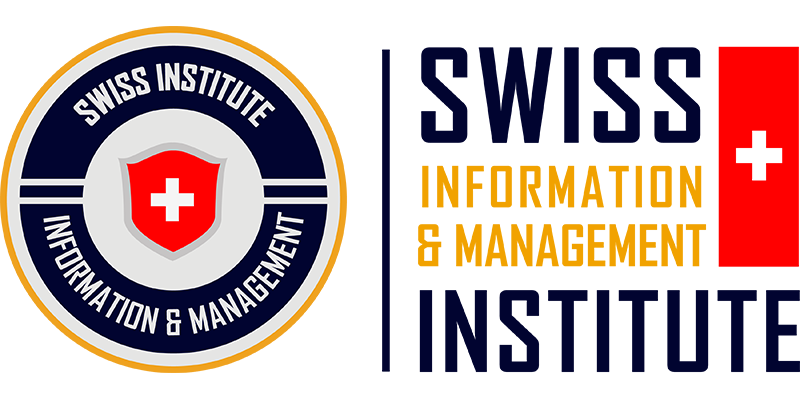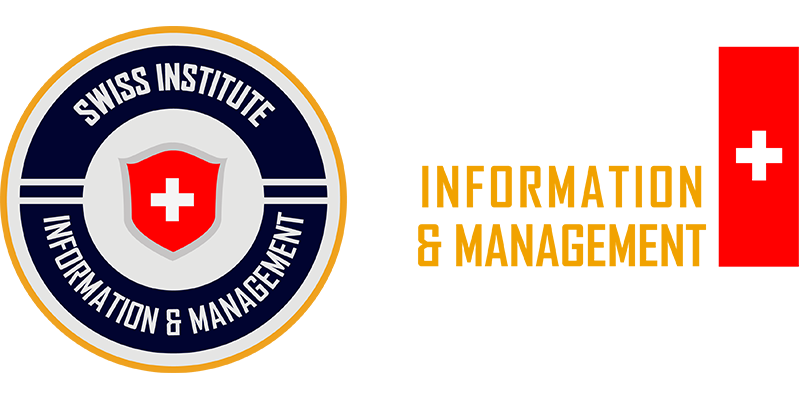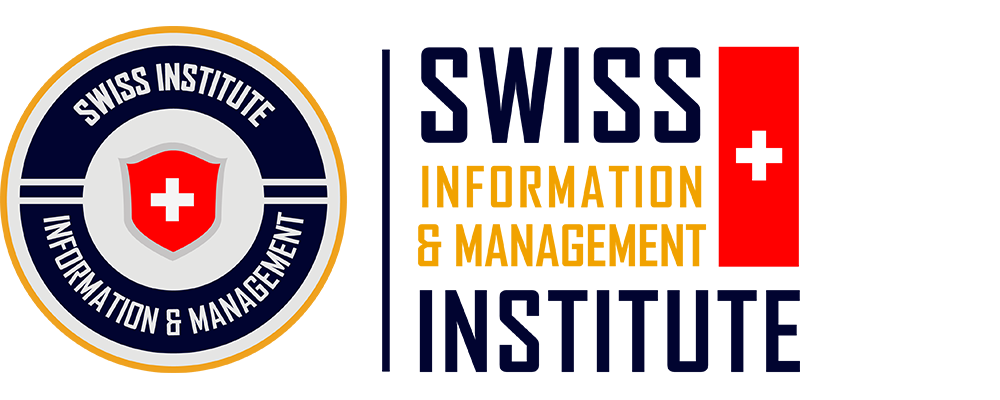Swiss Doctorate by Publication
The Ph.D. in Hospitality Management by Publication mode offers a flexible path for professionals to earn their doctorate by submitting a portfolio of their published work. Designed for those with significant contributions to hospitality management, the program evaluates existing work based on academic rigor, originality, and impact, allowing students to showcase their expertise while advancing their careers.
Rather than a traditional thesis, students compile a portfolio of publications, refined with mentorship to meet doctoral standards. The program uses the Modular Supervision Model, dividing research into manageable modules, each guided by a specialist. This structured approach ensures efficient supervision, fosters collaboration, and leads to impactful doctoral research.
Along with globally recognized qualification, the SIMI Swiss Doctorate program understands what students need:
- Fully Accredited & Recognized
- The Swiss Student Card (issued by authorities) confirms your official Swiss student status and eligibility with SIMI Swiss
- Stay updated with the latest trends
- Flexible learning options
- Expand your professional network
- Academic and research support throughout your studies
- Tuition fee support provided by Swiss EduFund
- Support for 5 international publications
Qualification within a Swiss Doctorate by Publication Program:
- Doctor of Philosophy in Hospitality Management from Swiss Information and Management Institute
1. Developing Research Capability (R/618/5992)
Overview
This unit focuses on the role of research in solving business problems. It emphasizes critically evaluating existing literature and establishing the need for further research in business contexts.
Unit Aims
- Understand the importance of business research in addressing organizational challenges.
- Evaluate existing literature and identify gaps for further investigation.
- Develop theoretical solutions to business problems and justify the need for research.
- Examine the philosophical, ontological, and epistemological perspectives of research.
Course Details
This course is accredited and mapped to National Occupational Standards. It can also be accumulated towards earning a Doctoral Award from SIMI Swiss if taken independently.
- View details on Learning Outcomes, Topics, and Suggested Readings HERE.
2. Advanced Research Design and Methodologies (L/618/5991)
Overview
This module builds on existing knowledge of research methods, focusing on advanced research designs and methodologies. It emphasizes the application of both qualitative and quantitative data analysis techniques for business research.
Unit Aims
- Analyze various research approaches and propose appropriate methodologies.
- Evaluate and apply advanced data collection techniques.
- Conduct comprehensive data analysis using advanced statistical tools and qualitative techniques.
- Understand the ethical considerations in research.
Course Details
This course is accredited and mapped to National Occupational Standards. It can also be accumulated towards earning a Doctoral Award from SIMI Swiss if taken independently.
- View details on Learning Outcomes, Topics, and Suggested Readings HERE.
3. How To Publish Your Research Paper
Overview
This module is designed to equip researchers with advanced skills in supervising doctoral research and publishing research papers. It covers the entire research supervision process, from initiation to guiding the researcher through the publication process in international journals. The module emphasizes effective management of both qualitative and quantitative research, ensuring the successful publication of research findings.
Unit Aims
- Master the process of supervising doctoral research, from inception to completion.
- Develop skills to guide researchers in writing and publishing research papers in peer-reviewed international journals.
- Analyze different research methodologies and choose the appropriate approach for doctoral-level studies.
- Understand the ethical considerations and best practices in supervising and publishing research.
Ph.D Thesis
The Ph.D. thesis is a key component of the doctoral journey, representing the culmination of years of research and study. It serves as an original contribution to the field, where Ph.D students are expected to develop new theories, explore uncharted areas, or propose innovative solutions to existing problems. The thesis demonstrates the student’s ability to conduct independent, high-level research and contributes to the academic and professional body of knowledge.
Outcomes of a successful Ph.D. thesis include not only the attainment of a doctoral degree but also the potential for research findings to be published in academic journals, presented at conferences, or applied in real-world scenarios. These outcomes establish the student as an expert in their field, opening up opportunities for academic, professional, and research-based careers.
The distribution of a Ph.D. thesis typically involves several stages: submission to the university, evaluation by an academic committee, and possibly a public defense. After approval, the thesis may be published in academic repositories, shared with research communities, and, in some cases, adapted into books or professional reports, ensuring its impact extends beyond the doctoral program itself.
Outcomes of a Ph.D. Thesis:
- Attainment of a doctoral degree, signifying expertise in the field.
- Contribution of original research to the academic and professional community.
- Potential for research findings to be published in peer-reviewed academic journals.
- Opportunities to present research at national and international conferences.
- Application of research outcomes to real-world problems or industry challenges.
- Establishment of the student as an expert, opening doors to academic, research, and professional roles.
Distribution of a Ph.D. Thesis:
- Submission to the university or institution for academic evaluation.
- Review and evaluation by an academic committee or panel of experts.
- Possible requirement of a public defense (viva voce) to defend the thesis.
- Approval and awarding of the doctoral degree upon successful defense and review.
- Publication in academic repositories or university databases for public access.
- Potential for further adaptation into academic publications, books, or professional reports.
- Sharing within research communities, both academic and professional, to extend its impact.
1. Modular Supervision Model
Structure: The Modular Supervision Model organizes the research supervision process by dividing it into distinct modules, with each module (such as a chapter or specific section) assigned to a specialist in that particular area. For example, one supervisor may oversee the introduction and literature review, while another focuses on methodology, and a third guides the data analysis and results sections. This structured approach ensures that each part of the research receives expert attention tailored to its specific requirements.
Benefits:
- Expertise and Specialized Guidance:
- Targeted Expertise: Each module is supervised by an expert in that specific field, ensuring that students receive high-quality, specialized advice tailored to the unique demands of each section of their research.
- Enhanced Quality: Specialized supervisors can provide deeper insights and more nuanced feedback, elevating the overall quality of the research.
- Focused and Efficient Support:
- Clear Responsibilities: By assigning specific sections to different supervisors, responsibilities are clearly delineated, reducing overlap and confusion.
- Timely Feedback: With multiple supervisors handling different modules, students can receive more timely and relevant feedback, facilitating steady progress.
- Comprehensive Coverage:
- Holistic Development: Each module is addressed thoroughly, ensuring that all aspects of the research are well-developed and cohesive.
- Balanced Perspectives: Exposure to multiple supervisors brings diverse viewpoints and methodologies, enriching the research process.
- Flexibility and Adaptability:
- Adaptive Supervision: As the research evolves, the modular approach allows for adjustments in supervision. If a particular section requires more attention, additional expertise can be allocated without disrupting the entire supervision framework.
- Scalability: This model is scalable to accommodate varying research complexities and student needs, making it suitable for a wide range of doctoral projects.
- Enhanced Collaboration and Networking:
- Collaborative Environment: Working with multiple supervisors fosters a collaborative academic environment, encouraging interdisciplinary approaches and innovative solutions.
- Professional Networking: Students build relationships with several experts in their field, expanding their professional network and opening up more opportunities for mentorship and collaboration.
- Efficient Management of Workload:
- Balanced Workload: Distributing supervision across modules helps manage the workload more effectively for both supervisors and students, preventing burnout and ensuring sustained productivity.
- Resource Optimization: Institutions can better utilize their academic resources by matching supervisors’ strengths to specific research needs.
- Personalized Learning Experience:
- Tailored Support: Students receive personalized guidance that aligns with their research interests and strengths, fostering a more engaging and supportive learning experience.
- Skill Development: Exposure to different supervisors’ expertise helps students develop a broader skill set and a more comprehensive understanding of their research topic.
Conclusion: The Modular Supervision Model offers a structured and flexible approach to doctoral supervision, leveraging specialized expertise to enhance the quality and efficiency of the research process. By dividing supervision responsibilities into manageable modules, this model ensures comprehensive coverage, fosters collaboration, and provides personalized support, ultimately contributing to the successful completion of high-caliber doctoral research.
2. Research Supervisor Process
SIMI Swiss understands that providing support and guidance to doctoral students throughout the research process and international publication not only reduces unnecessary stress and challenges for the doctoral students but also contributes valuable and high-quality research to society. With the unique Modular Supervision Model, doctoral students will gradually complete their PhD research, publish international papers, and meet the exceptionally rigorous standards of SIMI Swiss.
Learn more about the Research Supervision Process HERE.
3. Guidance on Publication
SIMI Swiss’s Doctorate by Publication program is renowned for its guidance and support, helping students not only complete their research but also successfully publish two international papers. The international publication guidance process at SIMI Swiss is implemented through the following steps:
- Guidance on selecting the appropriate journal
- Providing templates and methods for completing the submission
- Submitting the paper to the journal
- Guiding revisions based on feedback from the journal’s scientific board
- Finalizing the paper for publication
4. Guidance on Revisions and Format Support
After submitting a research paper to an international journal, the editorial board typically provides feedback, often suggesting revisions to improve the paper before it can be accepted for publication. At SIMI Swiss, students receive comprehensive support to successfully navigate this critical stage of the publication process. Support activities include:
- Detailed evaluation of the feedback with guidance from the research supervisor;
- Assistance in refining, analyzing, and revising the paper to ensure it meets the journal’s standards;
- Guidance in reformatting the paper according to the journal’s specific requirements;
- Coaching on how to professionally and effectively respond to reviewer feedback. With personalized guidance and formatting support, researchers can confidently resubmit their revised paper, significantly increasing the likelihood of acceptance and publication.
This process ensures that their research meets the high standards of international journals, enhancing both their academic credibility and professional expertise.
1. Entry Requirements
In addition to the entry requirements, candidates applying to the program are also assessed for their suitability by the admissions committee before joining the program to ensure that they can acquire and benefit from the program.
Entry requirements:
To enroll in this program, learners must be over 24 years old and meet at least one of the following criteria:
- A Master’s qualification in Majors from accredited universities; or
- A Level 7 EQF diploma or equivalent. Level 7 Diploma must be from organizations that are authorized to issue qualifications and have been accredited
English requirements:
If a learner is not from a predominantly English-speaking country, proof of English language proficiency must be provided.
- Common European Framework of Reference (CEFR) level B2 or equivalent;
- Or A minimum TOEFL score of 101 or IELTS 5.5; Reading and Writing must be at 5.5 or equivalent.
Please note:
- SIMI Swiss does not accept entry qualifications from counterfeit universities, Diploma Mills, or universities accredited by unreliable accreditation agencies.
- SIMI reserves the right to make admissions decisions based on the requirements of recognized agencies and the global quotas of the program.
2. Learning methods
The qualification is designed to be delivered over 3 academic years for full-time study, but it also offers a flexible model to accommodate part-time and distance learning options.
The qualification is delivered in the following modes:
1. On-campus Mode in Switzerland
- Blended Learning: Combines the benefits of traditional classroom instruction with the flexibility of online learning, allowing students to participate in in-person sessions on campus while also benefiting from digital resources such as online lectures, discussion forums, and virtual collaborative tools.
- Full-time Learning: Involves attending campus-based classes on a set schedule, allowing for closer interaction with professors, peers, and industry professionals. Students also have the opportunity to participate in various extracurricular activities, internships, and on-campus events, providing them with a well-rounded experience.
Learn more about SIMI Campuses [HERE]
2. Off-campus Mode:
The program combines Live Classes with lecturers and local tutors (where applicable) for a hybrid learning experience.
- Offering interactive, real-time engagement with instructors.
- Local tutors provide additional guidance to help learners apply theoretical concepts to practical scenarios (please note that local tutors only apply where SIMI has a scientific partner).
- Ideal for busy professionals seeking flexibility with personalized support.
Learn more about the overview of enrolling in online classes at SIMI Swiss [Video HERE]
Learn more about the effectiveness of SIMI Pedagogy [Video HERE]
3. Fully Online Mode:
The program is implemented using a combined automated training model that includes:
- Optimized Online Learning System: Designed to enhance the self-study process.
- Bite-Sized Lectures: Lessons are structured in short, manageable modules, enabling students to grasp the content immediately after completing each module.
- Comprehensive Support System: Provides students with the necessary tools and support to efficiently fulfil course requirements.
Learn more about how to use the automated training model at SIMI Swiss [Video HERE]
3. Academic Support
We understand that pursuing an accredited postgraduate program can be both exciting and challenging, especially for busy adult learners. To help you overcome these challenges, we’ve created the SIMI Swiss Supporting Systems, designed to guide you through any difficulties during your studies.
For a full overview of the support available, be sure to watch our informative videos, offering help at every stage of your academic journey.
1. Accreditation review guidelines by SIMI Swiss
SIMI is the first higher education institute in Zug, Switzerland, to achieve comprehensive international accreditations at both the organizational and program levels. The video below guides you through the step-by-step process of verifying and checking SIMI Swiss's accreditations and recognitions.
2. Refer to SIMI Swiss Program information in SVEB Switzerland
SVEB Switzerland (Schweizerischer Verband für Weiterbildung) is the Swiss Federation for Adult Learning and serves as the national umbrella organization for adult education in Switzerland. SVEB is recognized as the leading authority in Switzerland for promoting and supporting lifelong learning and professional development through a wide range of educational programs and certifications.
Benefits of the SIMI Swiss Programs Published in SVEB:
- National & Federal Recognition: Being published in SVEB gives the SIMI Swiss program official recognition in Switzerland, validating its quality and adherence to Swiss educational standards.
- Increased Credibility: Membership and listing with SVEB enhance the credibility of the SIMI program, making it more attractive to prospective students and employers who value SVEB-approved programs.
- Professional Advancement: Programs listed with SVEB are often aligned with the needs of the Swiss job market, increasing graduates' employability and supporting their career progression within Switzerland.
- Access to a Wider Network: Association with SVEB connects the SIMI Swiss program to a broader network of educational institutions, professionals, and employers across Switzerland, offering opportunities for collaboration, networking, and knowledge exchange.
- Compliance with Swiss Standards: SVEB ensures that SIMI Swiss programs meet high educational standards, including up-to-date content, qualified instructors, and effective teaching methods, enhancing the overall learning experience for students.
- Support for Lifelong Learning: SVEB’s focus on adult education means the SIMI Swiss program aligns with lifelong learning principles, supporting students in their ongoing professional development.
Check the SIMI programs on SVEB HERE.


